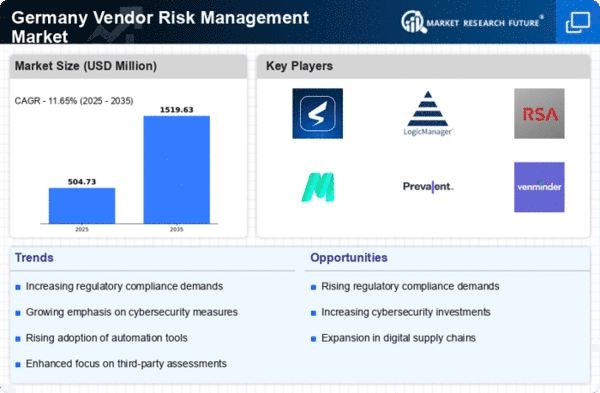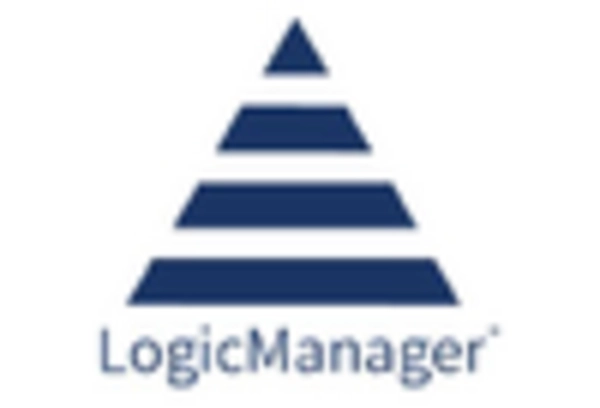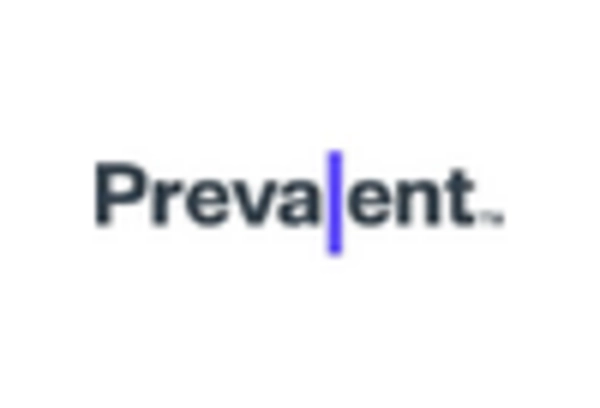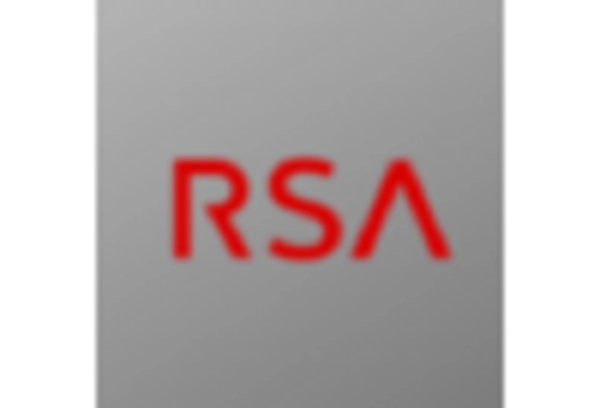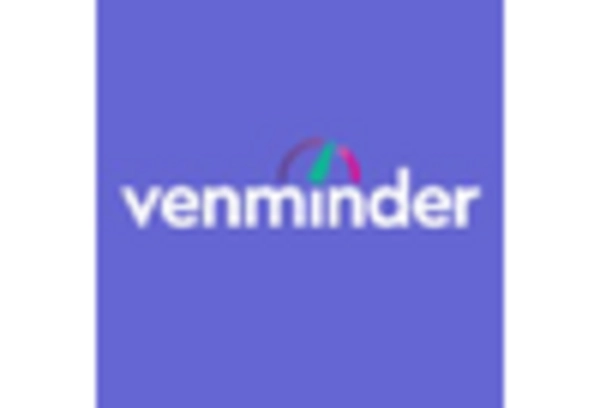Rising Cybersecurity Threats
The vendor risk-management market in Germany is experiencing heightened demand due to the increasing prevalence of cybersecurity threats. Organizations are recognizing the necessity of robust vendor risk management strategies to mitigate potential breaches that could arise from third-party relationships. In 2025, it is estimated that cybercrime could cost businesses globally over $10 trillion annually, prompting German companies to invest significantly in risk management solutions. This trend indicates a shift towards prioritizing cybersecurity in vendor assessments, as firms seek to protect sensitive data and maintain compliance with stringent regulations. The vendor risk-management market is thus likely to expand as businesses adopt comprehensive frameworks to evaluate and monitor their vendors' cybersecurity practices.
Evolving Supply Chain Dynamics
The vendor risk-management market in Germany is influenced by the evolving dynamics of supply chains, particularly in the wake of recent disruptions. Companies are increasingly aware that their supply chains are interconnected, and risks can propagate through vendor networks. In 2025, approximately 70% of German firms are expected to enhance their vendor risk assessments to address these complexities. This shift is likely to drive demand for sophisticated risk management tools that can provide real-time insights into vendor performance and reliability. As organizations strive for resilience, the vendor risk-management market is poised for growth, with firms seeking to ensure continuity and minimize disruptions in their supply chains.
Increased Focus on Sustainability
Sustainability has emerged as a critical driver in the vendor risk-management market in Germany. Companies are increasingly evaluating their vendors not only on financial metrics but also on environmental and social governance (ESG) criteria. In 2025, it is projected that over 60% of German businesses will incorporate sustainability assessments into their vendor risk management processes. This trend reflects a broader societal shift towards responsible business practices, compelling organizations to ensure that their vendors align with sustainability goals. Consequently, the vendor risk-management market is likely to see a surge in demand for tools that facilitate ESG compliance and reporting, as firms aim to enhance their reputations and mitigate risks associated with unsustainable practices.
Technological Advancements in Risk Assessment
The vendor risk-management market in Germany is being propelled by technological advancements that enhance risk assessment capabilities. Innovations such as artificial intelligence (AI) and machine learning (ML) are enabling organizations to analyze vast amounts of vendor data more efficiently. In 2025, it is anticipated that the adoption of AI-driven risk management solutions will increase by 40% among German firms. These technologies allow for more accurate risk predictions and proactive management strategies, thereby improving overall vendor performance. As businesses seek to leverage technology to streamline their risk management processes, the vendor risk-management market is likely to expand, driven by the demand for advanced analytical tools.
Growing Demand for Transparency and Accountability
The vendor risk-management market in Germany is witnessing a growing demand for transparency and accountability in vendor relationships. Stakeholders, including consumers and regulatory bodies, are increasingly insisting on clear visibility into vendor practices and compliance. In 2025, it is expected that 75% of German companies will prioritize transparency in their vendor risk management frameworks. This trend is likely to drive the development of solutions that facilitate better communication and reporting between organizations and their vendors. As firms strive to build trust and ensure compliance with regulatory standards, the vendor risk-management market is poised for growth, with an emphasis on fostering accountability in vendor partnerships.


